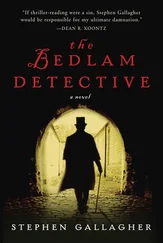“You all right, sir?”
I turned around. First Sergeant had been behind me the entire time, his hulking frame a silhouette against the swelling purple sky.
“I’m good. Thanks, Top.” I paused and tried to think of something worth saying. “We have a couple angels looking over us now, you know?”
First Sergeant’s face remained stiff. “Yes, sir.”
He grabbed Ortiz’s rifle by the rail guards and asked if anyone in my platoon needed it. I shook my head and said we were good. He told me to take it anyhow.
That summer, I learned the fate of a college friend named Randy Chiu. He’d been a few years ahead of me in ROTC, a fraternity brother, and, having grown up in Irvine, he was another suburbanite exiled to rural Oregon. He’d deployed to Afghanistan, but it was all the same war because the same people were fighting it — on our side, at least.
Most of the cadet class of 2005 had signed contracts in the days and weeks after 9/11. Some claimed they did it for honor or patriotism, while others kept hidden dreams of battlefield glory. Not Chiu. No, Chiu signed his ROTC papers on September 10, 2001, after his parents told him they’d lost everything in a poor investment and couldn’t afford a private liberal arts education anymore. The army could, though, and the recruiting officer was all too happy to bring in a cadet of Chiu’s academic merit.
Whenever the timing of his ROTC contract signing came up, Chiu talked like his immigrant grandmother. “Wahhndy,” he said, “you have wuck of wingless bird.” Then, back in his own voice, he’d add, “Growing up, when she said that, I always just thought Grandma was a mean, cranky B-word. Turned out, she was right.”
Of Taiwanese descent, Chiu was one of four minorities in our ROTC program, and the only Asian. Vietcong jokes were relentless. Chiu went along with them, often volunteering for the role of the enemy — the nefarious bad guys from our operations orders were always nationless and colorless — during field exercises in the woods behind the ROTC department.
“It’s awesome being the bad guy.” Chiu liked to brag about being a forest jihadi. “The cadre shows us where to attack, but never stays with us. Guaranteed nap, every time. Plus, one time I watched a soccer girl and a Sigma Chi hook up on a bench by the lake. They didn’t think anyone could see them.”
As fellow cadets, we learned to tolerate Chiu and his idiosyncrasies. Most of the cadre, though, as professional military men and women, didn’t know what to do with him — he couldn’t march, he couldn’t shoot, and he couldn’t help but turn every aspect of training into a circus. But Chiu could make people laugh, even adults, and that can take someone a long way. The only person Chiu could never crack was Sergeant First Class Miller. Sergeant Miller seemed to hate Chiu, which made sense, because Sergeant Miller hated everyone. A combat veteran of the famed Ranger Regiment, none of us could figure out how or why the Vein (a nickname we whispered behind his back, due to a huge blood vessel that bulged from his forehead) had been assigned to an ROTC unit in wartime.
The other cadre members were approachable and friendly, overweight and nearing retirement. The Vein was rarely approachable, never friendly, and as far from being fat as he was from retiring. A fist of a man, he led our 6:00 a.m. physical training sessions on weekday mornings, loudly conducting exercise drills outside the dorm windows of oversleeping cadets until they joined us. No one dared defy Sergeant Miller, not unless one counted Chiu’s detached perplexity as defiance.
We were more concerned about Chiu’s relationship with the Vein than Chiu was. He simply attributed it to some sort of existential difference. “We’re just oil and water. Fire and ice. Military service and Young Republicans!”
Leadership labs occurred every other Thursday afternoon for three hours. The first twenty minutes were spent drawing dummy rifles, made of a hard synthetic rubber, from the arms room. Then we marched to the woods and executed various drills under the guidance of Sergeant Miller. One bright spring day, at the beginning of training, the Vein asked for volunteers to serve as the enemy ambushers. Chiu’s hand shot into the air.
“Not today, Chiu,” the Vein said. “Today you’re going to learn some actual infantry tactics, whether you like it or not.”
“A simple no would’ve worked,” Chiu muttered. Three other cadets were selected.
Once the chosen enemy disappeared over a hill and into the forest to plot in secret, the Vein announced he’d be conducting a uniform inspection. Groans bounced from cadet to cadet like a pinball; uniform inspections meant uniform deficiencies, which in turn meant mass punishment.
Chiu, a frequent offender of uniform inspections, was third in line. We all held our breath as Chiu’s canteens were tapped, but miraculously, both were filled with water. We all winced as the Vein pulled at the straps on Chiu’s outdated flak vest and load-bearing equipment, but they held in place. The Vein straightened Chiu’s patrol cap, then gave him a toothy sneer — the closest thing to a smile he ever offered any of us — while slapping him on the back. Chiu almost fell over, rocking forward on his tiptoes to catch his balance. But just as Sergeant Miller seemed ready to move to the next cadet, he lifted the bottom of Chiu’s camo top to reveal a royal blue belt and shiny silver buckle. The groans returned. Army dress regulation called for a black fabric belt and a black buckle with field uniforms. Chiu instead wore a belt from a trendy surfwear company, and while we understood it was the only belt Chiu owned small enough for his narrow waist, Sergeant Miller did not.
“Titty fucking Christ, Chiu. Who do you think you are, a parade marine?”
“No, Sergeant,” Chiu said, deadpan. “I’m Randy Chiu. ROTC cadet?”
The undertone in Chiu’s response did not go unnoticed. “That’s it, Iron Mikes for everyone. To the water tower and back, all thanks to Randy Chiu, eternal soup sandwich!” We did as told, some laughing, others cursing Chiu for his inability to right himself.
When we returned from the water tower, our young quadriceps burning like brush, the Vein gathered us together.
“Listen up, heroes,” he said. “I know all this seems strange now. Like a game. But this is going to keep you alive in a couple years. Going to keep your platoons together. You’ll be in charge of soldiers’ lives. I can’t impress the seriousness of that upon you enough. You will be in charge of people like me.” He paused, wrapping his hands behind his back. “How’s that make you feel?”
I didn’t know about anyone else, but it made me feel lacking. I’d no idea how I’d ever lead men like Sergeant Miller to a meal, let alone in combat. They seemed born to another time, when practical skills like knowing which way north was and how to tie a hundred knots were something more than party tricks. Good thing the wars are almost over, I thought. Only the older cadets need to worry.
When no one answered him, the Vein called on the only hand raised.
“It makes me feel good,” Chiu said. “Because if my sergeants in the real army are like you, they’ll usually be right. Which means I’ll make good decisions.”
We tried not to laugh. The Vein held back for a few seconds, but couldn’t help himself. “ ‘Usually’? ” he asked.
Chiu just shrugged.
Two hours later, our squad lay motionless in a small depression in the woods, watching ants crawl over us. Bladders ached. Throats throbbed. Backs itched. But we couldn’t move for fear of crunching sticks or pinecones that would give away the advancing squad, which had gone on assault while we stayed back as reinforcements. A discerning eye would’ve noticed the semicircle of rubber muzzles sticking out into the great beyond, but discerning eyes had better places to be.
Читать дальше




![Ally Carter - [Gallagher Girls 02 ] - Cross My Heart & Hope To Spy](/books/262178/ally-carter-gallagher-girls-02-thumb.webp)
![Ally Carter - [Gallagher Girls 01] I'd Tell You I Love You But Then I'd Have to Kill You](/books/262179/ally-carter-gallagher-girls-01-i-d-tell-you-i-lo-thumb.webp)






